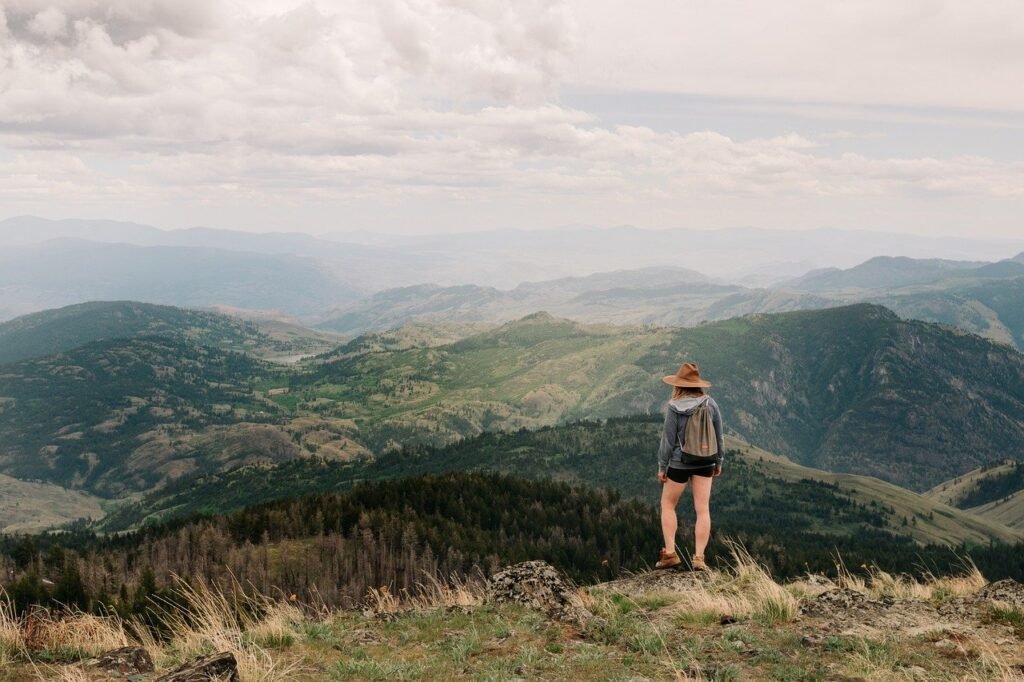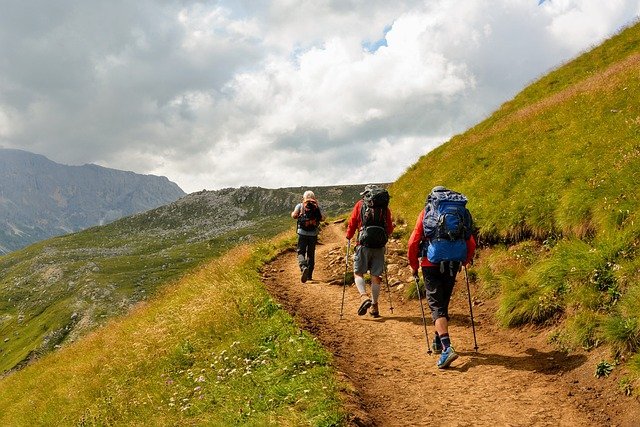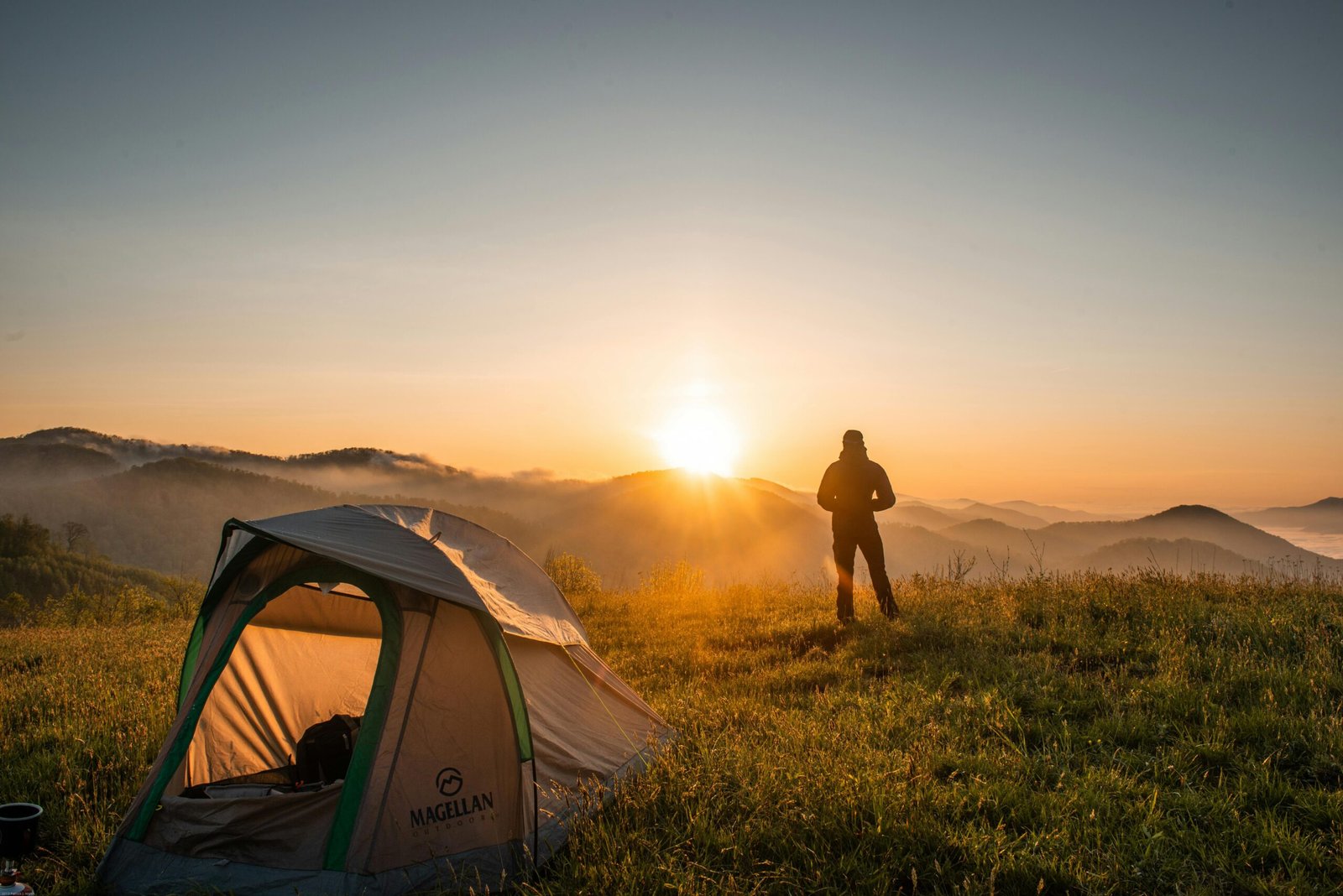Hiking vs. Trekking: Everything You Need to Know Before Hitting the Trails
If you’ve ever felt the call of the mountains or dreamed of exploring breathtaking landscapes, chances are you’ve come across the terms “trekking” and “hiking.” Let’s break down the key differences between trekking and hiking, dive into the technical aspects, and help you determine which one is better suited for you.
What is HIking?
Hiking is essentially a long walk on well-defined trails, typically in natural environments like forests, hills, or mountains. It is often a day-long activity and is accessible to people of all fitness levels. Here’s a closer look:
Characteristics of Hiking:
- Trail Type: Hiking trails are usually well-marked and maintained, making navigation relatively easy.
- Duration: Most hikes last from a few hours to a full day. Overnight hikes are less common but not unheard of.
- Intensity: Hiking is generally less physically demanding than trekking. The trails are usually less steep, and the terrain is more predictable.
- Gear: You don’t need specialized equipment for hiking—a good pair of hiking shoes or boots, a backpack, water, snacks, and a map are often sufficient.
- Accessibility: Hiking trails are more likely to be near urban or suburban areas, making them more accessible for quick trips.
Popular Hiking Destinations:
- Appalachian Trail (USA)
- Cinque Terre (Italy)
- Mount Takao (Japan)
What is Trekking?
Trekking takes hiking to the next level. It involves walking for multiple days through more challenging and often remote terrain. Trekkers often venture into areas that are less accessible and more rugged, immersing themselves in nature for extended periods.
Characteristics of Trekking:
- Trail Type: Trekking paths can be less defined and may require navigation skills or guides. Trails often go through mountainous or remote regions.
- Duration: Treks usually last several days to weeks, with overnight stays in tents, lodges, or huts.
- Intensity: Trekking is more physically demanding due to longer distances, higher altitudes, and steeper climbs.
- Gear: Trekking requires more specialized gear, including sleeping bags, trekking poles, sturdy boots, layers of clothing, and sometimes cooking equipment.
- Accessibility: Trekking routes are often far from cities and may require significant travel to reach the starting point.
Popular Trekking Destinations:
- Everest Base Camp (Nepal)
- Inca Trail (Peru)
- Torres del Paine Circuit (Chile)
Key Differences Between Trekking and Hiking
| Feature | Hiking | Trekking |
| Duration | A few hours to one day | Multi-day adventures |
| Terrain | Well-marked, easy trails | Challenging, remote paths |
| Intensity | Moderate | High |
| Gear Needed | Minimal | Specialized gear |
| Accommodation | None needed; return to base | Campsites, lodges, or huts |
| Accessibility | Near cities or towns | Remote, often hard to reach |
Which is Better for You?
Now that you know the differences, how do you decide which activity is better for you? It depends on your fitness level, interests, time availability, and goals. Let’s break it down:
Choose Hiking if:
- You’re a Beginner: Hiking is an excellent starting point for people new to outdoor adventures.
- Time is Limited: If you only have a day or a few hours, hiking is the way to go.
- You Want a Relaxing Experience: Hiking trails are less intense, making it easier to enjoy the scenery without pushing your limits.
- You’re Close to Urban Areas: Hiking trails are more accessible and often located near cities.
- You Want Minimal Gear: You don’t need to invest in expensive equipment to enjoy hiking.

Choose Trekking if:
- You Love Challenges: Trekking is for those who enjoy pushing their physical and mental limits.
- You Have Time: Multi-day adventures require a significant time commitment.
- You’re Seeking Remote Beauty: Treks take you to less-traveled areas with breathtaking landscapes.
- You’re Prepared for More Gear: Trekking requires a more significant investment in equipment.
- You Want to Disconnect: Trekking offers a chance to truly disconnect from modern life and immerse yourself in nature.

Both hiking and trekking offer unique ways to connect with nature, stay active, and challenge yourself. Hiking is perfect for beginners and those seeking a shorter, more relaxed outing. Trekking, on the other hand, is ideal for adventurers who crave extended, immersive experiences in remote landscapes.
Ultimately, the “better” option depends on your personal preferences and goals. Whether you choose a scenic day hike or an epic multi-day trek, the key is to enjoy the journey, respect the environment, and savor the beauty of the great outdoors. So lace up your boots, pack your bag, and set off on your next adventure!
Explore More:
Ready to plan your adventure? Check out our curated list of guided tours, top-rated accommodations, and essential gear to make your next hiking or trekking experience unforgettable.








